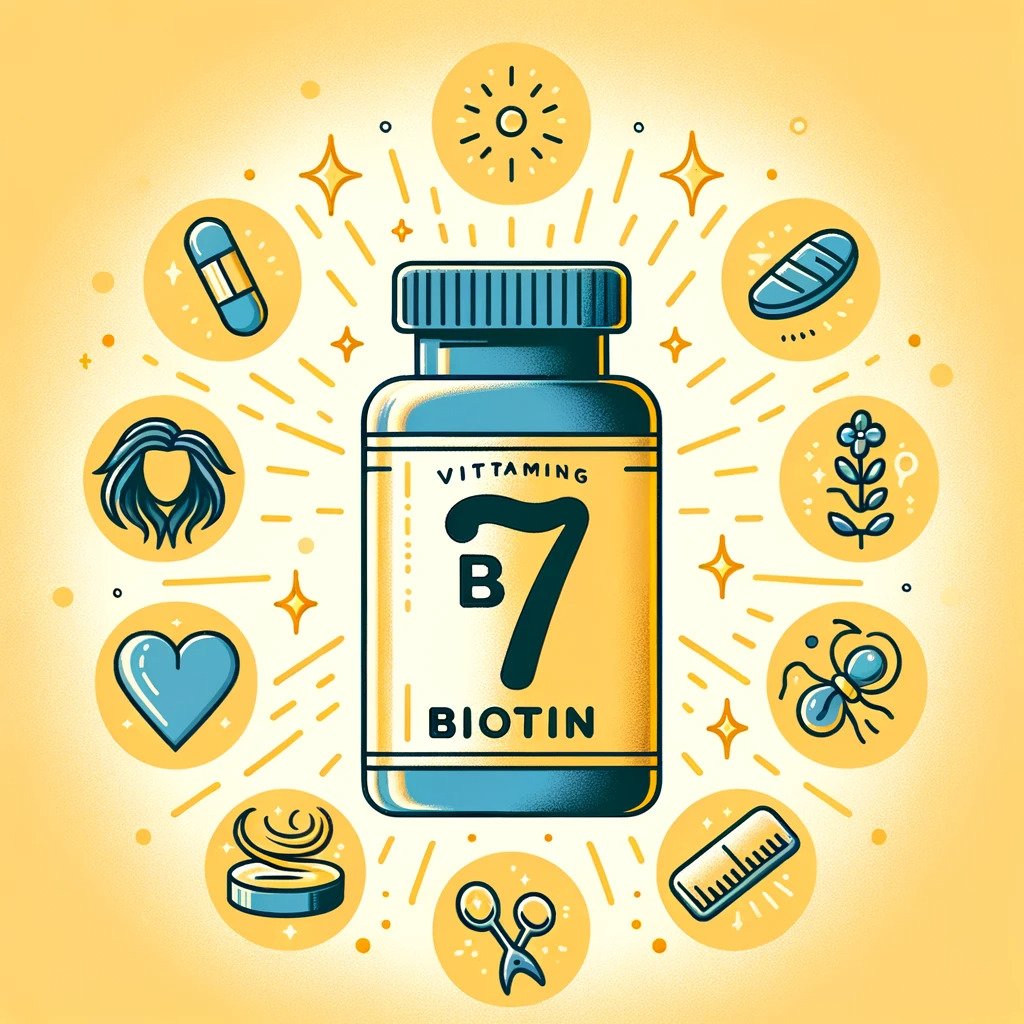Vitamin B7 (Biotin or Vitamin H), is essential for the body, and we can obtain it through many foods. Find out what its functions are.

Vitamin B7, widely recognized as biotin or vitamin H, is a remarkable nutrient known for its profound impact on health. Although lesser-known compared to other vitamins, its contribution towards maintaining a healthy physiology is significant.
A key feature of Vitamin B7 is its water-soluble nature, which plays a pivotal role in the metabolism of amino acids. This attribute also extends to preserving the health of the skin, nerves, sex glands, and hair, which are critical for our overall well-being.
One of the advantages of Vitamin B7 is its availability in a variety of foods. This abundance eliminates the pressing need for supplements, making it accessible to everyone. However, there’s a caveat for individuals following vegetarian diets low in fat and cholesterol, as these diets often lack adequate levels of biotin. In such scenarios, biotin supplements could fill the nutritional gap, especially for individuals with kidney disorders or facing challenges in intestinal absorption.
Understanding Vitamin B7
Vitamin B7 belongs to the B-vitamin group, known for its water-soluble nature. This characteristic implies a regular dietary inclusion since the body can’t store it. Additionally, the body can easily expel excess biotin through urine, ensuring no health risks associated with its overconsumption.
The Multifaceted Role of Vitamin B7
The roles of Vitamin B7 are diverse and essential. It significantly impacts growth and the physiological condition of nervous tissue, skin, hair, sebaceous glands, and blood cells. Its involvement in protein and lipid metabolism is a gateway to potential benefits like weight loss and blood sugar control.
Vitamin B7 is a catalyst in various enzymatic reactions encompassing the metabolism of proteins, carbohydrates, and fats. It’s a cornerstone for the production of cholesterol and hormones, and also participates actively in the synthesis and oxidation of fats. Not to mention, it’s a significant player in muscle growth and regeneration, which is a boon for individuals aiming for a stronger physique.
Embarking on a Biotin-Rich Diet
Embarking on a journey to increase your Vitamin B7 intake? The foods leading the charge include brewer’s yeast, pork kidney, yeast extract, pork liver, bran wheat, and wheat germ. Additionally, chicken, lamb, whole wheat bread, and fatty fish are commendable sources, albeit in smaller amounts.
Recommended Daily Intake
The suggested daily intake ranges from 15 to 100 mg of biotin, ensuring the body receives its required share of this vital nutrient. Lack of adequate Vitamin B7 could manifest in hair loss or scaly dermatitis, particularly in younger individuals.
Navigating through Vitamin B7 Deficiency
A balanced diet is usually the shield against Vitamin B7 deficiency. However, certain conditions might still lead to a deficiency, causing symptoms like conjunctivitis, dermatitis, or alopecia. Individuals with a high intake of alcohol or raw egg whites need to be cautious as they might tread towards a potential Vitamin B7 deficiency.
In conclusion, Vitamin B7 or biotin is a treasure trove of benefits waiting to be unlocked. Integrating biotin-rich foods into your diet or considering supplements if necessary could be a step towards a healthier life.





























